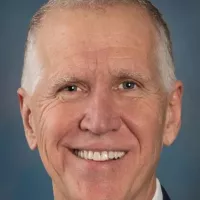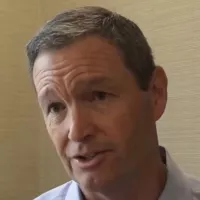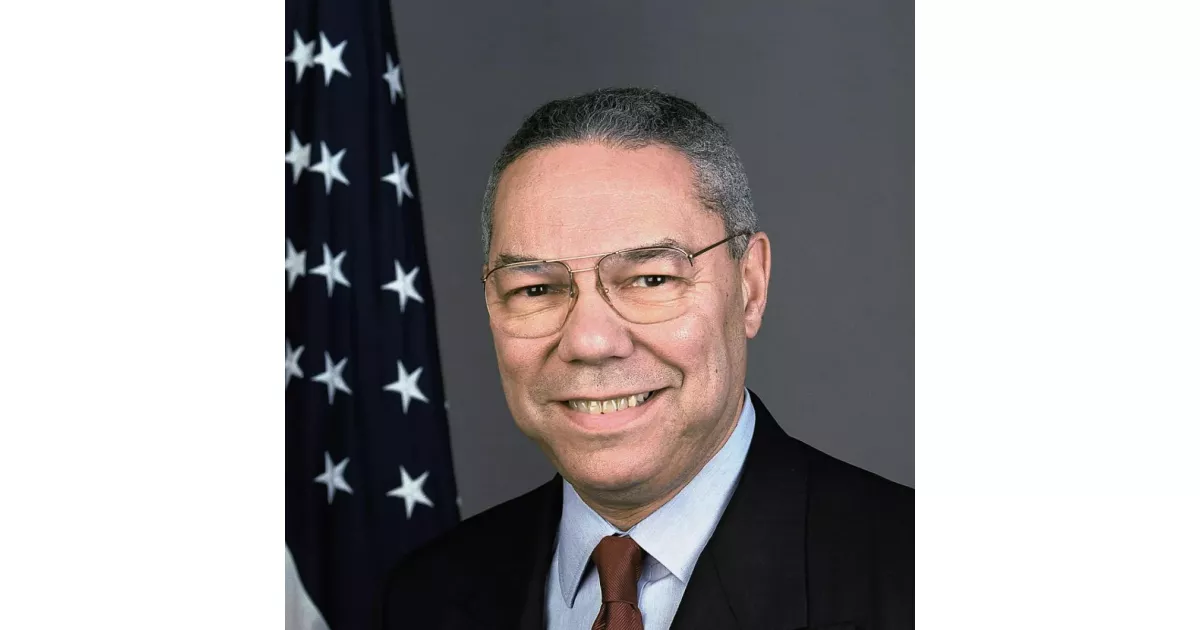How Colin Powell built a successful career. Explore key moments that defined the journey.
Colin Powell (1937-2021) was a prominent American statesman and four-star general. He served as the 65th U.S. Secretary of State (2001-2005), the first African American to hold that position. Previously, he was National Security Advisor (1987-1989) and Chairman of the Joint Chiefs of Staff (1989-1993), the highest-ranking military officer in the U.S. Armed Forces. Powell's career was marked by his involvement in major foreign policy decisions and military operations from the Reagan to the George W. Bush administrations, though his presentation to the UN Security Council in 2003 regarding Iraq's alleged weapons of mass destruction remains controversial.
1958: Commissioned as Second Lieutenant
In 1958, Colin Powell graduated from City College of New York and was commissioned as a second lieutenant.
1960: Group Liaison Officer
From 1960, Colin Powell served as group liaison officer, company executive officer, and commander of Company A, 1st Battle Group, 4th Infantry, 2nd Infantry Brigade, 5th Infantry Division (Mechanized) at Fort Devens, Massachusetts.
1962: Vietnam Tour as Advisor
From 1962, Captain Colin Powell served a tour in Vietnam as a South Vietnamese Army (ARVN) advisor.
1962: Group Liaison Officer
Until 1962, Colin Powell served as group liaison officer, company executive officer, and commander of Company A, 1st Battle Group, 4th Infantry, 2nd Infantry Brigade, 5th Infantry Division (Mechanized) at Fort Devens, Massachusetts.
1968: My Lai Massacre Investigation
In 1968, Colin Powell investigated a letter alleging the My Lai massacre. His assessment was later criticized as a whitewash.
1968: Return to Vietnam
In 1968, Colin Powell returned to Vietnam as a major and served as assistant chief of staff of operations for the 23rd (Americal) Infantry Division. He was awarded the Soldier's Medal for bravery after rescuing three others from a helicopter crash.
1971: Master of Business Administration Degree
In 1971, Colin Powell earned a Master of Business Administration degree from George Washington University in Washington, D.C.
1971: MBA from George Washington University
In 1971, Colin Powell graduated from George Washington University with an MBA.
1972: White House Fellowship
From 1972, Colin Powell served a White House Fellowship under President Richard Nixon.
1973: End of White House Fellowship
Until 1973, Colin Powell served a White House Fellowship under President Richard Nixon.
1975: Attended National War College
From 1975, Colin Powell attended the National War College, Washington, D.C.
1976: Command of 2nd Brigade
From 1976, Colin Powell commanded the 2nd Brigade of the 101st Airborne Division.
1976: Attended National War College
Until 1976, Colin Powell attended the National War College, Washington, D.C.
1977: Command of 2nd Brigade
Until 1977, Colin Powell commanded the 2nd Brigade of the 101st Airborne Division.
June 1979: Promotion to Brigadier General
On June 1, 1979, Colin Powell was promoted to brigadier general.
1983: Invasion of Grenada
In 1983, as senior military assistant to Secretary of Defense Caspar Weinberger, Powell assisted during the invasion of Grenada.
1987: National Security Advisor
From 1987, at the age of 49, Colin Powell became Ronald Reagan's National Security Advisor.
April 1989: Promotion to Four-Star General
In April 1989, Colin Powell was promoted to four-star general under President George H. W. Bush and served as Commander in Chief, Forces Command (FORSCOM).
October 1989: Joint Chiefs of Staff Chairman
In October 1989, Colin Powell was appointed as the Joint Chiefs of Staff chairman, the highest military position in the United States Department of Defense.
October 1989: Appointment as Chairman of the Joint Chiefs of Staff
In October 1989, Colin Powell was assigned as the 12th chairman of the Joint Chiefs of Staff, marking the beginning of his tenure in the highest military position in the Department of Defense.
1989: Commander of U.S. Army Forces Command
In 1989, Colin Powell became the commander of the U.S. Army Forces Command.
1989: End of Term as National Security Advisor
In 1989, Colin Powell finished his term as Ronald Reagan's National Security Advisor.
1989: National Security Advisor & Chairman of the Joint Chiefs of Staff
In 1989, Colin Powell finished his term as the 15th National Security Advisor and also became the 12th chairman of the Joint Chiefs of Staff.
1989: Chief of Staff
In 1989, Colonel Lawrence Wilkerson becomes Powell's aide-de-camp and Chief of Staff.
1991: Application of the Powell Doctrine in Operation Desert Storm
In 1991, Powell applied his military approach, known as the Powell Doctrine, to Operation Desert Storm. This approach emphasized maximizing the potential for success and minimizing casualties through the use of overwhelming force.
1992: Potential Vice Presidential Nominee
In 1992, Powell was considered as a potential Democratic vice presidential nominee or even a replacement for Vice President Dan Quayle as the Republican vice presidential nominee.
September 1993: End of Tenure as Chairman of the Joint Chiefs of Staff
In September 1993, Colin Powell's assignment as the 12th chairman of the Joint Chiefs of Staff concluded, ending his service in the highest military position in the Department of Defense.
September 1993: End of Term as Joint Chiefs of Staff Chairman
In September 1993, Colin Powell's assignment as the Joint Chiefs of Staff chairman came to an end.
September 1993: Early Resignation as Chairman of the Joint Chiefs of Staff
In September 1993, Powell's growing irritation towards Secretary of Defense Leslie Aspin led to his early resignation as Chairman of the Joint Chiefs of Staff.
1993: Chairman of the Joint Chiefs of Staff
In 1993, Colin Powell finished his term as the 12th chairman of the Joint Chiefs of Staff.
1995: Published Autobiography
In 1995, Colin Powell wrote his autobiography, "My American Journey".
1996: Decline to Run for President
In 1996, despite leading New Hampshire polls for the GOP nomination, Powell declined to run for president, citing a lack of passion for politics.
1997: Founding of America's Promise and Establishment of The Colin L. Powell Center for Leadership and Service
In 1997, Powell founded America's Promise to help children from all socioeconomic sectors and The Colin L. Powell Center for Leadership and Service to prepare new generations of publicly engaged leaders.
December 2000: Nomination for Secretary of State
In December 2000, President-elect George W. Bush named Colin Powell as his nominee to be Secretary of State in a ceremony at his ranch in Crawford, Texas.
2000: Consideration as Presidential Candidate and Endorsement of George W. Bush
In 2000, Powell was mentioned as a potential candidate in the U.S. presidential election but decided against running. He later endorsed George W. Bush for president and spoke at the Republican National Convention.
2000: Statement about Saddam Hussein's Regime
In 2000, on the day he was nominated to be Secretary of State, Colin Powell told the press that Saddam Hussein was "sitting on a failed regime that is not going to be around in a few years time".
January 2001: Confirmation as Secretary of State
In January 2001, Powell was unanimously confirmed by the United States Senate as Secretary of State and ceremonially sworn in.
February 2001: Statement on Sanctions Against Iraq
In February 2001, Powell stated that sanctions against Iraq had prevented the development of any weapons of mass destruction by Saddam Hussein.
September 2001: Response to 9/11 Terrorist Attacks
In September 2001, during the 9/11 terrorist attacks, Powell was in Lima, Peru. Afterward, his role became critical in managing relationships with foreign countries to secure a stable coalition in the War on Terrorism.
2001: Secretary of State
In 2001, Colin Powell became the 65th United States Secretary of State, and was the first African-American to hold the office.
2001: Appointment as Secretary of State
In 2001, George W. Bush appointed Powell as Secretary of State, beginning his tenure in the Bush administration.
2001: Disagreement on Action Against al-Qaeda
In 2001, before 9/11, Richard A. Clarke pushed the Bush administration for action against al-Qaeda in Afghanistan, a move opposed by Paul Wolfowitz.
February 2003: Address to the United Nations Security Council
In February 2003, Powell addressed the United Nations Security Council, arguing in favor of military action against Iraq, asserting that Saddam Hussein had biological weapons and was working to obtain key components to produce nuclear weapons.
February 2003: United Nations Presentation
Powell gave a presentation to the UN in February 2003, making the case for military action against Iraq. He later said that the sources who provided much of the information in the presentation were "wrong" and that it was "unlikely" that any stockpiles of WMDs would be found.
2003: Timing of U.S. Forces in Iraq Surge
In 2003, Powell concluded that a surge of U.S. forces in Iraq should have come sooner, perhaps in late 2003.
2003: Role in Building the Case for the 2003 Invasion of Iraq
In 2003, Powell played a role in building the case for the invasion of Iraq.
May 2004: Comments on My Lai
In May 2004, Colin Powell commented on the My Lai massacre to Larry King, stating that such horrible things happen in war but are still to be deplored.
September 2004: Powell Describes Darfur Events as Genocide
In September 2004, Colin Powell labeled the events in Darfur as "genocide," making him the first cabinet member to use the term for an ongoing conflict.
September 2004: Testimony Before Senate Committee
In September 2004, Powell testified before the Senate Governmental Affairs Committee, acknowledging that the sources who provided much of the information in his February 2003 UN presentation were "wrong" and that it was "unlikely" that any stockpiles of WMDs would be found.
November 2004: Resignation as Secretary of State
In November 2004, Colin Powell resigned from his position as Secretary of State shortly after George W. Bush was reelected, after Bush communicated his desire for Powell to resign via a phone call. Condoleezza Rice was nominated as his successor the following day.
2004: Resignation as Secretary of State
In 2004, Colin Powell resigned from his position as Secretary of State after George W. Bush was reelected.
April 2005: Expresses Reservations About John Bolton Nomination
In April 2005, after retiring from his role as Secretary of State, Colin Powell privately expressed reservations to Republican senators Lincoln Chafee and Chuck Hagel about the nomination of John Bolton as ambassador to the United Nations, but did not explicitly advise them to oppose Bolton.
April 2005: Accusations of Campaign Against Bolton
On April 28, 2005, an opinion piece claimed that Powell was "conducting a campaign" against Bolton due to past disagreements, including Bolton allegedly spying on Powell.
2005: End of term as Secretary of State
In 2005, Colin Powell finished his term as the 65th United States Secretary of State.
January 2006: Participates in White House Meeting
On January 5, 2006, Colin Powell participated in a White House meeting with former Secretaries of Defense and State to discuss United States foreign policy with Bush administration officials.
September 2006: Sides with Senate Republicans on Detainee Rights
In September 2006, Colin Powell sided with moderate Senate Republicans, supporting more rights for detainees and opposing President Bush's terrorism bill, expressing concerns about the moral basis of the fight against terrorism.
2007: Discusses Iraq War with President Bush
At the 2007 Aspen Ideas Festival in Colorado, Colin Powell stated that he had spent two and a half hours explaining to President Bush "the consequences of going into an Arab country and becoming the occupiers".
2007: Joins Revolution Health Board
In 2007, Colin Powell joined the board of directors of Steve Case's new company, Revolution Health and also served on the Council on Foreign Relations Board of directors.
2007: Donates to John McCain's Campaign
In the summer of 2007, Colin Powell donated the maximum allowable amount to John McCain's campaign.
October 2008: Praises Iraq Troop Surge and Iraqi Government
Following his endorsement of Barack Obama in October 2008, Colin Powell praised General David Petraeus and U.S. troops, as well as the Iraqi government, concluding that "it's starting to turn around".
October 2008: Endorses Barack Obama for President
On October 19, 2008, Colin Powell announced his endorsement of Barack Obama for President, citing his ability to inspire, inclusive campaign, and style, while also questioning McCain's choice of Sarah Palin as vice president.
December 2008: Reiterates Belief About Palin's Impact on Republican Party
In a December 12, 2008, interview, Colin Powell reiterated his belief that during the last few months of the campaign, Sarah Palin pushed the Republican party further to the right and had a polarizing impact on it.
2008: Spokesperson for National Mentoring Month
In 2008, Colin Powell served as a spokesperson for National Mentoring Month, a campaign held each January to recruit volunteer mentors for at-risk youth.
2008: Reiterates Support for 2003 Iraq Invasion
In a 2008 interview on CNN, Colin Powell reiterated his support for the 2003 decision to invade Iraq in the context of his endorsement of Barack Obama.
2008: Mentioned as Possible Running Mate for McCain
In early 2008, Colin Powell's name was listed as a possible running mate for Republican nominee John McCain's bid during the 2008 U.S. presidential election.
July 2009: Expresses Concern Over Federal Spending
In a July 2009 CNN interview, Colin Powell expressed concern over President Obama increasing the size of the federal government and the size of the federal budget deficit.
September 2009: Advises Against Surge in Afghanistan
In September 2009, Colin Powell advised President Obama against surging U.S. forces in Afghanistan.
2009: Concludes U.S. Forces in Iraq Surge Should Have Come Sooner
By mid-2009, Colin Powell concluded that a surge of U.S. forces in Iraq should have come sooner, perhaps in late 2003.
January 2010: Supports Repeal of Don't Ask, Don't Tell Policy
In January 2010, Colin Powell supported the repeal of the "don't ask, don't tell" policy.
September 2010: Criticizes Obama Administration's Focus on Economy
In September 2010, Colin Powell criticized the Obama administration for not focusing "like a razor blade" on the economy and job creation.
2010: Joins Smithsonian Advisory Council
In 2010, Colin Powell joined the Smithsonian advisory council and was an advocate for the National Museum of African American History and Culture with his wife, Alma Powell.
November 2011: Acknowledges Sound Decisions by Obama
In a video that aired on CNN.com in November 2011, Colin Powell said in reference to Barack Obama, "many of his decisions have been quite sound. The financial system was put back on a stable basis".
October 2012: Endorses Obama for Re-Election
On October 25, 2012, Colin Powell endorsed President Obama for re-election, citing his administration's success and Mitt Romney's changing positions and economic plans.
2012: Published Book
In 2012, Colin Powell published another book titled, "It Worked for Me: Lessons in Life and Leadership".
March 2014: Joins Salesforce.com Board of Directors
In March 2014, Salesforce.com announced that Colin Powell had joined its board of directors.
October 2016: Powell Endorses Hillary Clinton
On October 25, 2016, Powell endorsed Hillary Clinton for president, citing her qualifications while questioning those of her opponent, Donald Trump.
June 2020: Powell Announces Support for Joe Biden
On June 7, 2020, Powell announced he would be voting for former Vice President Joe Biden in the 2020 United States presidential election.
January 2021: Powell Leaves Republican Party
In January 2021, after the attack on the Capitol building by Trump supporters, Powell told CNN: "I can no longer call myself a fellow Republican".
Mentioned in this timeline

Donald John Trump is an American politician media personality and...

Bill Clinton served as the nd U S President from...

Barack Obama the th U S President - was the...

Hillary Diane Rodham Clinton is a prominent American politician lawyer...

George W Bush the rd U S President - is...

Joe Biden is an American politician who served as the...
Trending

20 minutes ago North Carolina Early Voting Surges Before 2024 Primary Elections, Featuring Thom Tillis

21 minutes ago Jurickson Profar Suspended 162 Games by MLB for Second PED Violation.

1 hour ago Zach Braff surprised by 'Scrubs' reboot cast's age; show returns with new heart.

1 hour ago Mitch Barnhart, Kentucky's Athletic Director, to Retire After Long Tenure

1 hour ago Jets Secure Breece Hall with Franchise Tag: Future Plans and Contract Details

1 day ago Elisabeth Hasselbeck Returns to 'The View', Receives 'Armor of God' Gift
Popular

Jesse Jackson is an American civil rights activist politician and...

Hillary Diane Rodham Clinton is a prominent American politician lawyer...

Jim Carrey is a Canadian-American actor and comedian celebrated for...

Ken Paxton is an American politician and lawyer serving as...

XXXTentacion born Jahseh Dwayne Ricardo Onfroy was a controversial yet...

Bill Clinton served as the nd U S President from...


